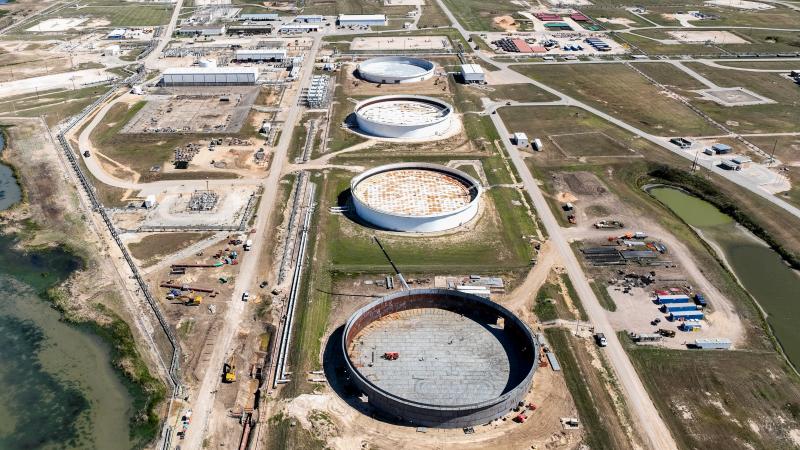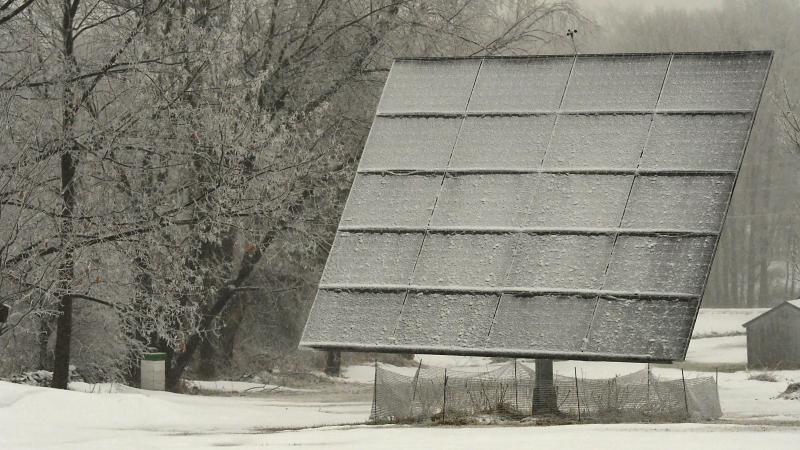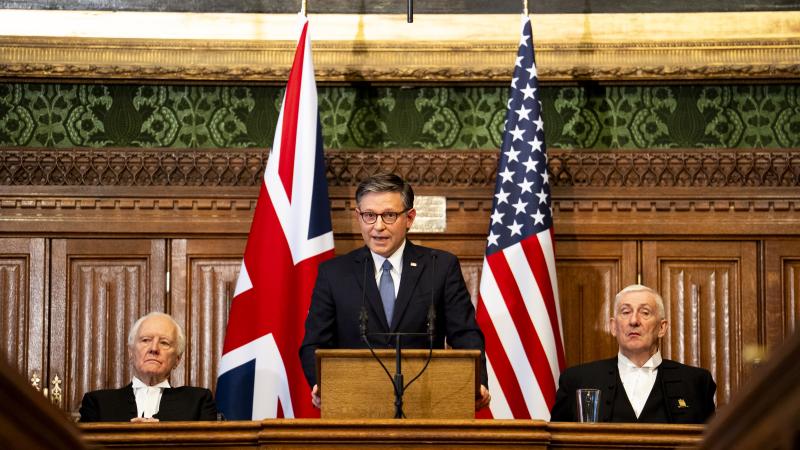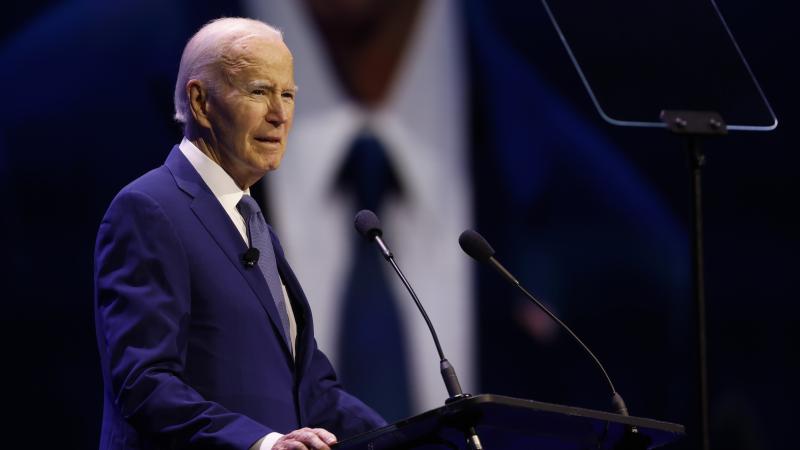House repealing California's special EPA waiver the first mile of highway to undo Biden EV mandate
The House on Wednesday passed a repeal of the "California waiver," which is a key component of former President Joe Biden’s push to get American drivers to buy EVs. The Trump administration has a long road ahead to dismantle all the parts.
The House on Wednesday passed a measure repealing a waiver that the Biden administration, in its final days, had handed California. The waiver allowed the state to set emissions standards higher than those set by the Environmental Protection Agency.
Among the promises President Donald Trump made during his campaign was to immediately bring an end to what is generally referred to as the Biden administration’s electric vehicle mandate. There are a few regulatory components of former President Joe Biden’s push for most American drivers to buy EVs.
“There’s a whole infrastructure here, if you will, to support the EV mandate, and dismantling that is a pretty big task,” Tom Pyle, president of the American Energy Alliance, told Just the News.
Repealing the California waiver was the first action Congress has taken under the Trump administration to begin that process. The measure still must pass the Senate, but if it reaches his desk, Trump is expected to sign it. It must now withstand likely legal challenges. Other aspects of Biden’s EV vision may face similar challenges.
The Biden administration passed a bundle of rules and regulations that, while not requiring drivers to buy EVs, set emissions standards that automakers must comply with by making an increasing portion of their sales EVs. Opponents of the rules say they function as a de facto EV mandate.
These rules include the EPA’s tailpipe emission standards, which set limits on emissions from vehicles, and the National Highway Traffic Safety Administration’s Corporate Average Fuel Economy (CAFE) standards, which limit emissions across fleets of vehicles. There are also the EV tax credits, which were increased as part of Biden’s signature climate law, the Inflation Reduction Act. While the credits don’t mandate EVs, they provide further incentives to buy them.
Following California's special treatment
California just outright banned the sale of gas cars. In 2022, the California Air Resources Board (CARB) adopted the Advanced Clean Cars II (ACCII) regulations, which require 100% of all new vehicles sold in the state to be zero-emission models by 2035.
The federal Clean Air Act (CAA) preempts states from making their own emissions regulations, but a provision in the law gave the EPA the authority to grant California waivers.
On his “Landmark” Substack, journalist Clark Mindock explained that this was done because California had major air pollution issues when the law was passed. The CAA also allowed other states to adopt California's standards, as Oregon, Washington, New York, Massachusetts, Vermont, New Jersey, Rhode Island, Maryland, Colorado, Delaware, New Mexico and the District of Columbia elected to do.
To adopt emissions requirements independent of the federal government, California needed a waiver. The waiver California received forms a third component of the Biden administration’s EV mandate. According to the Institute for Energy Research, a repeal of the tailpipe emission and CAFE standards won’t undo the EV mandate unless the waiver is revoked, because 11 other states and D.C. have already adopted California’s ACCII.
The Alliance for Automotive Innovation, an auto manufacturers’ industry group, wrote a letter last month to House Speaker Rep. Mike Johnson, R-La., and House Minority Leader Hakeem Jeffries, D-N.Y., arguing that the waiver would have national impacts. The percentage of EV cars that automakers would need to sell to meet the law’s requirements, the alliance explains, would require a “miracle” to achieve.
“If automakers cannot sell the required number of electric vehicles in ‘California’ states, they will be forced to substantially reduce the number of overall vehicles for sale to inflate their proportion of electric vehicle sales,” the alliance wrote.
Questions about Congressional authority to revoke
The resolution revoking California’s waiver was introduced under the Congressional Review Act (CRA), allowing Congress to block finalized federal regulations. Two other resolutions addressing California’s waivers — one dealing with heavy-duty vehicles and another dealing with nitrogen oxide emissions — were also passed Wednesday. The waiver for the ACCII passed with a voice vote, but Rep. Frank Pallone, D-N.J., requested a count, which passed on Thursday, 246-164.
Last month, Parliamentarian of the United States Senate Elizabeth MacDonough, E&E News reported, ruled that the waivers Biden granted California are not rules and therefore are not under the purview of the CRA. Republicans appear set to ignore the ruling.
Mindock wrote that ignoring the ruling would go against decades of precedent under the administrations of both parties and opens the door for legal disputes should future presidents grant California a new waiver. The CRA, Mindock explains, prohibits federal agencies from approving new rules that are “substantially similar” to rules that have been revoked under the CRA. Exactly what “substantially similar” means may be a question the courts will have to decide if a potentially similar rule is passed.
The tailpipe emission standards and CAFE standards have more standing for congressional review. In September, the House passed a resolution to revoke the tailpipe emission standards, but it hasn’t gone beyond the Senate Committee on Environment and Public Works. Rep. Gary Palmer, R-Ala., introduced a measure to repeal the CAFE standards, and it now sits with the House Energy and Commerce Committee.
Meanwhile, the Trump administration is taking its own actions to repeal the rules. In January, Transportation Secretary Sean Duffy ordered a review of the CAFE standards, and EPA Administrator Lee Zeldin announced in March an effort to terminate the tailpipe emission standards.
Tax credits cost over $300 billion
Since the EV tax credits were part of the Inflation Reduction Act, they will need an act of Congress to reduce or eliminate them. The Inflation Reduction Act provides up to $7,500 for new EVs and hybrids for those who qualify. The tax credit given also includes aspects of electric and gas-powered motors. Another credit provides $4,000 for used electric and hybrid vehicles, and another provides credits for electric and hybrid commercial vehicles.
According to a new report by the Institute for Energy Research (IER), repealing the credits would save approximately $300 billion by 2035. “Eliminating these tax credits can help President Trump either reduce the deficit or pay for his priorities with respect to tax reform, and that includes extending the income tax rates in the TCJA [2017 Tax Cuts and Jobs Act]. If they're not extended, it is a tax increase on us,” Pyle, with the American Energy Alliance — the advocacy arm of the IER — said.
Unintended consequences
Most of the credits, the report notes, go to households earning as much as $300,000 a year, as that demographic is more likely to purchase clean cars. Biden’s EV mandate, Pyle said, was putting transportation out of the reach of more Americans as EVs and hybrids are more expensive to buy.
“If you can't afford a car, then you don't have that upward mobility — the freedom that a vehicle provides, economic opportunities, being able to go to and from a job, taking your kids to and from activities,” Pyle said.
The Biden administration put a lot of effort into constructing a regulatory framework to electrify American transportation, and the push for EVs gave little consideration to these unintended consequences. Unraveling the interconnected parts will take some time. Brick-by-brick, the Trump administration and Republicans in Congress appear prepared to carry out that mission.
The Facts Inside Our Reporter's Notebook
Links
- passed a measure repealing a waiver
- immediately bring an end
- American Energy Alliance
- tailpipe emission standards
- Corporate Average Fuel Economy
- EV tax credits
- new vehicles sold in the state
- Clean Air Act
- Landmark
- Institute for Energy Research
- unless the waiver is revoked
- Alliance for Automotive Innovation
- wrote a letter last month
- Congressional Review Act
- heavy-duty vehicles
- nitrogen oxide emissions
- passed on Thursday, 246-164
- E&E News reported
- passed a resolution to revoke the tailpipe emission standards
- introduced a measure to repeal
- ordered a review of the CAFE standards
- Lee Zeldin announced in March
- EV tax credits
- new report
- income tax rates in the TCJA
- EVs and hybrids are more expensive to buy















